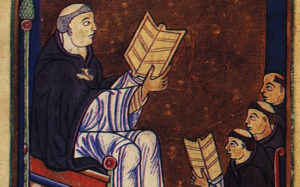
Do not call anything your own, but hold all you have in common. Food and clothing will be distributed to each of you by your superior, not equally to all, because you do not have the same strength, but to each one according to their needs.
Most of the first chapter of the Rule of St. Augustine centres on the sharing of property between members of the community. We will explore this across the next few weeks as we go through each verse. I want to focus this time on the issues of equality and equity within verse 4 to set us on a particular course of interpretation for the coming verses. A point must be made now, however, that will feed through the next few weeks’ reflections but is important to make now: sharing possessions is essential if we are going to share our lives.
In order for persons to give, they must have. I suggested last time that,
Mutual Flourishing will never work when the focus is to ensure our own flourishing but rather when we begin to sacrifice our own flourishing for the sake of someone else’s. My most powerful relationships are the ones forged in the crucible of radical, risky self-denial when we dared to decide to outdo each other in love and honour and thus dismiss our own compulsion to look after ourselves first. It is when we have served one another, not looking for our own needs to be met but to meet the needs of the other, that our needs do indeed get met and, often, I have found that my perceived needs were not needs at all but wants. It is in this mutuality of love that I have found peace in being gifted the care and wisdom of others over my limited understanding of my own requirements.
This form of relationship is indeed risky and is entered into with great daring! For it to take root in reality and for us to really rely on others in community we must trust that there is mutuality in sharing; otherwise power is abused and the will to give is eroded and ultimately lost. In order for persons to give love/trust, they must have love/trust. The sharing of heart and mind will cost us heavily as we sacrifice our own will for the will of the community. None of us can jump from isolation and self-reliance to mutuality and trust in community. The sharing of possessions is a good first step towards this ultimate goal. Those who can be trusted with little may be trusted with more.
The owning of resources and means of attaining resources is a position of power. This position becomes increasingly valuable when resources are seen as scarce or hard to come by. In abundance individuals are allowed to graze freely for themselves as the impact on the wider society is not felt in the short term. When there is much to go round, each individual can own equally as much as everyone else; the aim is to ensure everyone has the same amount of resources as others. When the resources become harder to come by, that freedom to take and have whatever we desire is challenged and we move into more legislated distribution. In more meagre times, the management of materials is an imposition which, if we have experienced the benefits of bounty, we may balk at. In these stricter times, society can’t ensure all the same stock. Decisions must be made, therefore, as to who needs resources and who can do without.
Imagine there is a harvest of 1040 units of wheat, and each unit of wheat is able to feed a person for a week. The community consists of 100 people. There is ample in that harvest to give to each individual double portions for each week of the year. Despite the person only needing 1 unit they can own 2 units, if they desire and it is the agreement with others. Now imagine that the harvest yields the same amount (roughly) each year for a decade or so. The members of the community will get used to having access to 2 units of wheat each week. Then the harvest only yields 520 units of wheat. This still ensures each member can have their 1 unit of wheat and survive. Some will complain that the life they were accustomed to is no longer around but there’s still enough to feed everyone. There may well be conversations about how to ensure fair distribution but there is enough for everyone to have their basic rations met. Now imagine that the harvest only yields 260 units of wheat! This means that there is not enough to ensure everyone has the 1 unit a week to feed themselves. It is in this situation (presuming no saving has taken place) that some will go without at some time. How do you choose who gets what?
The above picture of a two-dimensional community who only eat wheat helps us to open up a conversation on the difference between equality and equity. When resources are scarce the distribution of them becomes significant in the survival of the community. Sharing equally, giving everyone the same amount of resources, is fine when there’s enough to give basic necessity but when there is not enough, sharing equally is not good as everyone will suffer due to no-one getting their basic amount to survive. The people who burn off energy to attain the resource (net givers) may require more than those who do not (net receivers) in order to survive and potentially return the yield to abundance later. This, however, means that some who are unable to work don’t get to survive.
 There is a famous image of the difference between equality and equity which shows three people of different heights trying to watch a baseball game over a fence. In the picture of equality they all stand on the same size box meaning that the shorter person cannot see the game and the medium sized person can only just see the game. In the picture of equity the taller person doesn’t need a box, the medium sized person requires one box and the shorter of the three needs two boxes to see over the fence. This is helpful to separate out the problem we faced with the wheat-eating community above and can be distinguished as ‘equality of opportunity’ and ‘equality of outcome’. Equality of opportunity ensures everyone starts the race at the same time. Equality of outcome ensures everyone finishes the race at the same time.
There is a famous image of the difference between equality and equity which shows three people of different heights trying to watch a baseball game over a fence. In the picture of equality they all stand on the same size box meaning that the shorter person cannot see the game and the medium sized person can only just see the game. In the picture of equity the taller person doesn’t need a box, the medium sized person requires one box and the shorter of the three needs two boxes to see over the fence. This is helpful to separate out the problem we faced with the wheat-eating community above and can be distinguished as ‘equality of opportunity’ and ‘equality of outcome’. Equality of opportunity ensures everyone starts the race at the same time. Equality of outcome ensures everyone finishes the race at the same time.
Equality of opportunity, where everyone receives the same, seeks to create a level playing field but it fails to take into consideration particular needs and the advantages/disadvantages each member has. It is unfair that the tall person gets help when they don’t need it and the same amount doesn’t even help the shorter person to see the game. Equality of outcome, seems much fairer on the face of it as it ensures everyone ends up with the same amount and that all advantages/disadvantages are actually eradicated. It is still unfair, however.
In the pictures, height is the deciding differential factor; height, therefore, usually represents pre-conditioned wealth or social status, but what if it represents talents/strengths, skill/experience? If you were to look at the image from the other side of the fence you’d see all three persons as equal in talent/strength without being able to acknowledge the help that one had particularly received. Imagine you were the tall person and you had worked hard to get that tall (the analogy breaks down, I know, but stay with me!) but then another person who had it handed to them on two boxes was praised equally for the results, you’d consider that unfair. It would affect how much you were willing to work if, the distributers of the boxes were going to ensure everyone ends up being seen as the same. This is the issue that arises when we reward all players of games equally whether they won or not.
I have been reading a fascinating book by Simon Sinek called, ‘Leaders Eat Last: why some teams pull together and others don’t’. This book explores the natural hormones that made our primitive ancestors survive and thrive in the wildernesses of pre-history. Sinek suggests that a balance of, what he calls, ‘selfish hormones’ (Endorphin – the pain-masking hormone and Dopamine – the goal achieving hormone) and the ‘selfless hormones’ (Serotonin – the responsibility hormone and Oxytocin – the relationship hormone) ensures we experience happiness and success. Serotonin is released when we are thanked/praised for efforts made or for good behaviour. In the example of equality of outcome, the reality is that the tall person who contributed the most on their own will not be given the relative praise they are due and thus will not receive enough serotonin to make it worth while. They will ask, “Why did I bother contributing all that when my colleague did little (excuse the pun) and was praised just as highly?” The shorter person, however, receives a great kick of dopamine as they have achieved something but it’s short lived and relied on unfair help. Sinek argues that the environments we live and work in effect our hormone release and we must remain aware of what hormones our culture is encouraging to be released in us. Our current culture runs on the release of dopamine, the quick fix of achieving at any cost. In pre-history, this hormone ensured the cavemen (and it was men) went out to hunt for food. In modern day we are rewarded for reaching goals and targets but this means that we seek to achieve to the detriment of other people; this makes us highly competitive and individualised. Whilst we continue to seek the kick of dopamine, the most powerful of our hormones and the hormone connected with addictions of all kinds, we will not begin to counteract the painful effects of the negative hormone cortisol, our internal alarm system.
When we experience trauma or pain our bodies learn to associate certain stimulus with pain. Thus when we experience those stimuli again our bodies release another type of hormone called cortisol which puts us on our guard and triggers our ‘flight’, ‘flight’, or ‘freeze’ responses. This is called ‘being triggered’. When you hear a noise in the night or you suspect someone is threatening you your body release cortisol to ensure you are alert. Cortisol, if not used/burnt off, sits in your body and does great harm to our internal organs. Our bodies are like a smoke alarm which can detect smoke but can’t differentiate between the smoke of a fire or the natural smoke created when cooking bacon under a grill. It will release the same alarm (cortisol) whether there is a real danger or not. If we imagine danger we get the same injection of hormone than when there is real danger. If our bodies release cortisol unnecessarily the hormone that counteracts it and hinders it from doing damage, is oxytocin (the relationship hormone). Oxytocin is released when we feel safe and protected within a group or community and the hormone that encourages us to seek out oxytocin? Serotonin. The importance of trust within an organisation cannot be overstated. It is the ‘circle of safety’, the feeling that others will ensure you not only survive but thrive, that will encourage and inspire you to co-operate, collaborate and to innovate to ensure the success of the organisation and, only then, your own success.
The main problem, however, with the illustration of the three spectators of baseball is that it presumes the three individuals a)need to see the game and b)need to see the game at the same time. What if there was only one box and not three? Not everyone could be able to see the game. The shorter person would not be able to even if they had one box because they need two boxes to see but the medium sized person would be able to benefit. Under the rules of equality of outcome, however, none of the people could watch the game as the taller person would be encouraged to stoop down to be of the same height as their shorter counterpart.
We are, in our highly individualised society, starved of oxytocin and addicted to dopamine. We are also riddled with cortisol as we continue to live stressful, anxious and paranoid lives. In this environment we have learnt that, in order to feel happiness, we must get that addictive high of the quick-release but short lived dopamine by fulfilling our goals and attaining what we value in our society; material wealth and power. When these are in short supply then we fight for them rather than consider the seeking out of the slow-release but long term high created by serotonin or oxytocin. When the three persons watching a baseball game begin to invest in relationship and start to consider themselves as a community, they would be able to collaborate, co-operate and ensure those of them who needed (not just wanted) to see the game could and they would no longer need to compete against one another for the resource of boxes and then the whole would benefit from the watching of the game.
St. Augustine, in his sermon on Psalm 132, writes,
If each person owned and held his own goods for himself alone, then he would have only his own. But when you share your own goods in common, then the goods of others become your goods too.(St, Augustine, Exposition on Psalm 132, cited in Tarsicius J. Van Bavel, The Rule of St. Augustine (London: Darton Longman and Todd, 1996) p.50)
If we can begin to see ourselves not as isolated individuals but a part of one body in unity of multiplicity, then we can begin to share out the resources attained by the community in a way which benefits the whole not just a few. When the body receives nourishments from food it distributes the necessary items to the correct part of the body but every part of the body benefits from the nutrition. In this way sharing becomes a way of eradicating need but not just by satisfying that need.
Hugh of St. Victor, in his commentary on the Rule of St. Augustine discusses the New Testament’s description of the Early Church as a community where ‘there was not a needy person among them.’
So abundant was the outpouring of spiritual grace in the Early Church, that not only were the faithful content with little, but they esteemed it joy of the highest kind to feel that they had nothing of their own. “Having nothing, yet possessing all things” (2 Cor. 6:10)(Hugh of St. Victor, Explanation, p.12)
He goes on to differentiate between want and need,
In this matter, then, regard must be had, not to the desire of the flesh, but to each one’s natural constitution. The satisfaction of the desires of sensuality involves much more than bare necessity. So that under the precept of providing what is needed for everyone, the practice to be adopted is that the flesh be nourished in such a way that it may be fit to give its due service, and on the other hand, that it be kept under so that it may not proudly revolt against the spirit.(Ibid.)
I don’t believe that the Christian community in Acts 4 all had abundant resources and no need, rather, I interpret it as the community found satisfaction in what they shared and understood that all available resources were available to them and each was given resources according to their need. I am often reminded, when we pray ‘give us today our daily bread’, of Shane Claiborne’s teaching on this phrase.
…we are to pray this day for “our daily bread.” We are not to pray “my daily bread,” as if I can separate my own sustenance from my brother’s or sister’s…”our” means “us”. We are not to pray for our daily steak, but for the simple nourishment of bread. We are not to pray for tomorrow’s bread or next week’s bread…just today’s.(Shane Claiborne and John M. Perkins, Follow Me To Freedom: leading and following as an ordinary radical (California: Regal, 2009) p.156)
To counteract our competitive, consumerist and individualised society the Rule of St. Augustine, and the monastic life in general, challenges our personal understanding of what we need and what we deserve. It raises our heads from the scarcity of our solitary possessions set in the story of seclusion and exposure to the sustainable setting of shared social safety. We must, if we are to enter into this united life of simplicity, look carefully at the cultural environment in which we live and ensure that it encourages the balanced release of the all four happiness hormones and that includes oxytocin – the relationship hormone.
Why is it so difficult for sisters and brothers to be of one heart? Because they are struggling among themselves for possession of the earth…They must strive after possessions that cannot be divided, then they will always be of one heart. For what is the reason that discord arises among sisters and brothers? What is it that interferes with love? All people have indeed come forth from the one womb. Why, then, are they not of one spirit? For what other reason than that their spirit is concentrated upon themselves and everyone is mindful only of his own share.(St, Augustine, Sermon 359,i-ii, cited in Tarsicius J. Van Bavel, The Rule of St. Augustine (London: Darton Longman and Todd, 1996) p.51-2)
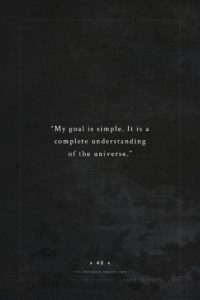 The Lord has led me into a new season and has begun a deeper work in me. He has placed me in a context which suits me. He has been clear on His call to this particular place at this particular time. Daily life is no longer such a battle and my sense of vocation is being affirmed by most. All of this has given me freedom from fear of local, daily external threat of abandonment and critique and given a capacity and strength to turn to the internal critique of my own broken psychology.
The Lord has led me into a new season and has begun a deeper work in me. He has placed me in a context which suits me. He has been clear on His call to this particular place at this particular time. Daily life is no longer such a battle and my sense of vocation is being affirmed by most. All of this has given me freedom from fear of local, daily external threat of abandonment and critique and given a capacity and strength to turn to the internal critique of my own broken psychology. I have said before that I have a reoccurring dream that wakes me feeling rigid with frustration, anger and anxiety. In this dream I find myself in a situation where I am being asked to speak to or lead/manage a group of people but no one will listen to my instructions. No matter how much a shout and scream no words come out of my mouth. This fear transforms, very quickly into violence as I battle to take control and stop the chaos. My need to impose some order is met with no change to the situation. I start to shake people who refuse to do what I want. I feel impotent and unable to make an impact on my environment and this expresses itself in a deep anger. It often climaxes on me biting or punching particular people who, in my mind, I see as personifying a lifestyle of carefree, consequence free selfishness who refuse to behave in a way I see as helpful. These people are people from my real life who I hold great frustration that they don’t play by the rules and don’t care about what other’s think. They are people who I now hold as totem for unbridled chaos!
I have said before that I have a reoccurring dream that wakes me feeling rigid with frustration, anger and anxiety. In this dream I find myself in a situation where I am being asked to speak to or lead/manage a group of people but no one will listen to my instructions. No matter how much a shout and scream no words come out of my mouth. This fear transforms, very quickly into violence as I battle to take control and stop the chaos. My need to impose some order is met with no change to the situation. I start to shake people who refuse to do what I want. I feel impotent and unable to make an impact on my environment and this expresses itself in a deep anger. It often climaxes on me biting or punching particular people who, in my mind, I see as personifying a lifestyle of carefree, consequence free selfishness who refuse to behave in a way I see as helpful. These people are people from my real life who I hold great frustration that they don’t play by the rules and don’t care about what other’s think. They are people who I now hold as totem for unbridled chaos!
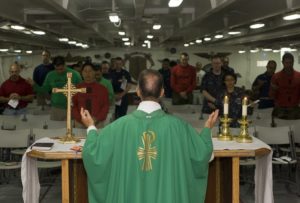




 Online relationships can easily be romanticised with our popular culture, media and even shared social narratives shaping our concept of love. We read the Bible through the lens of post-romantic Western culture and abuse the revolutionary and divine experience of ‘agape/love’ which is totally other focussed. This ‘agape/love’ has been perfectly revealed in Jesus and we must allow his love to challenge our understanding of what love is and to shape us to be transformed by it.
Online relationships can easily be romanticised with our popular culture, media and even shared social narratives shaping our concept of love. We read the Bible through the lens of post-romantic Western culture and abuse the revolutionary and divine experience of ‘agape/love’ which is totally other focussed. This ‘agape/love’ has been perfectly revealed in Jesus and we must allow his love to challenge our understanding of what love is and to shape us to be transformed by it. Who has the right to the land of Gaza and the West Bank? We could start by going into all the history and legalities over this issue. The use of words such as ownership can then be brought into question. Historical facts could then be muddied by interpretation of events and phrasings and then there’s the insurmountable obstacle of personal stories and the tangled web of historical violence from both sides.
Who has the right to the land of Gaza and the West Bank? We could start by going into all the history and legalities over this issue. The use of words such as ownership can then be brought into question. Historical facts could then be muddied by interpretation of events and phrasings and then there’s the insurmountable obstacle of personal stories and the tangled web of historical violence from both sides.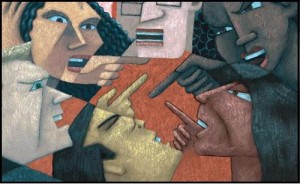 Winning arguments is easy if you can just wear down your opponent and the easiest way to do that is keep moving the goal posts; re-define the terms of the argument until it gets too complicated and they get confused and worn out. You don’t need truth to do this; all you need is stamina and intelligence.
Winning arguments is easy if you can just wear down your opponent and the easiest way to do that is keep moving the goal posts; re-define the terms of the argument until it gets too complicated and they get confused and worn out. You don’t need truth to do this; all you need is stamina and intelligence.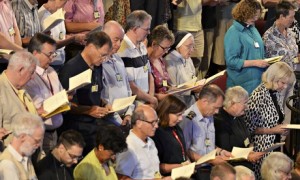 In November 2012 General Synod’s motion to vote female bishops failed, only just but enough. What was clear back then was that the debate had been established on the principle that there was an ‘us’ vs. ‘them’. The aim was not to discover wisdom but to ‘win’ at any cost. Both parties on the extremes didn’t seem to care how they would win just as long as they did. This week, however, the tone of the debate was not on winning points and persuasion but a genuine, heartfelt desire to seek wisdom and to trust one another. The debate stopped being about party politics but more about seeking genuine peace and wisdom only found in the Spirit of God.
In November 2012 General Synod’s motion to vote female bishops failed, only just but enough. What was clear back then was that the debate had been established on the principle that there was an ‘us’ vs. ‘them’. The aim was not to discover wisdom but to ‘win’ at any cost. Both parties on the extremes didn’t seem to care how they would win just as long as they did. This week, however, the tone of the debate was not on winning points and persuasion but a genuine, heartfelt desire to seek wisdom and to trust one another. The debate stopped being about party politics but more about seeking genuine peace and wisdom only found in the Spirit of God. To dismantle such a fence of division takes time, building trust and relationship something sadly lacking in our politics in this country. My very public critique of the Same Sex Marriage Bill was not based on some personal, moral judgement on homosexuality but on the way a decision was being sought. It was rushed. The lobbyists pressured opponents with the supposed lack of time and bullied people into making a response; to choose a side of the fence. Rather than taking the fences down they were happy to keep them there. People were forced off the fence onto one side or the other and it was all done by the manipulation of language. The same is being done with The Assisted Dying Bill.
To dismantle such a fence of division takes time, building trust and relationship something sadly lacking in our politics in this country. My very public critique of the Same Sex Marriage Bill was not based on some personal, moral judgement on homosexuality but on the way a decision was being sought. It was rushed. The lobbyists pressured opponents with the supposed lack of time and bullied people into making a response; to choose a side of the fence. Rather than taking the fences down they were happy to keep them there. People were forced off the fence onto one side or the other and it was all done by the manipulation of language. The same is being done with The Assisted Dying Bill.